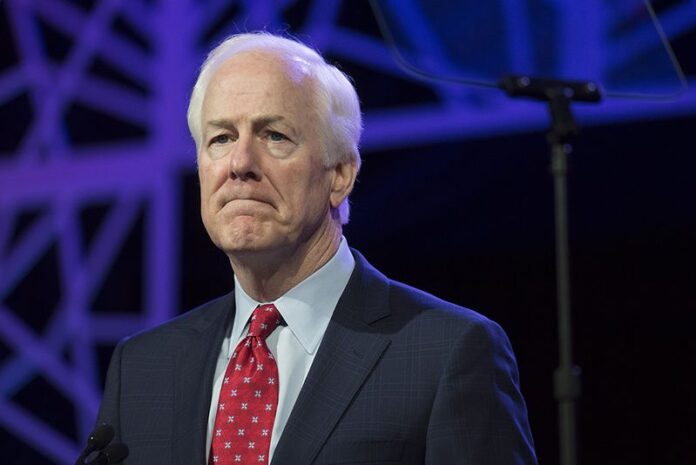Senate appropriators have agreed on a “border supplemental package” that includes $30 million in available funds for reimbursements to local governments, states and non-governmental organizations that have spent money on migrant aid.
Sen. John Cornyn announced the deal after sending a letter earlier this week to Senate appropriators “requesting this inclusion after hearing from many local Texas officials and nonprofits that, due to increased border crossings in recent months, local governments and NGOs have had to spend significant resources on services typically provided by the federal government.”
“In the absence of federal resources, local communities in Texas have been providing transportation, food and shelter for migrants in need,” Cornyn said, adding that local “resources are drained and funds for critical services like public safety and utilities are taking a hit. Through these reimbursements, we can take the burden off local communities and NGOs.”
Senate appropriators agreed with Cornyn’s request.
Since 2014, when the first surge of asylum-seeking Central American migrants crossed into the United States, Mayor Jim Darling said the city of McAllen has spent $1.1 million to assist Catholic Charities of the Rio Grande Valley in its mission of temporarily housing asylum-seeking immigrants who federal authorities drop off at the downtown McAllen bus station.
Darling said city staff has estimated that number could rise to $1.2 million by year’s end.
“These precious funds collected from local citizens have been diverted away from their traditional, intended purpose, such as providing clean drinking water, power and public safety needs,” Cornyn wrote in his letter to Senate appropriators. “Instead, these resources are being used to fill a role that has traditionally been filled by the federal government.”
Darling thanked Cornyn in a statement.
“We applaud Sen. Cornyn’s efforts to help the city of McAllen with federal funding as we continue our response to the immigrant situation our community has been dealing with since 2014,” Darling said. “We see our efforts as two-fold: one, as an extension of the work of the federal government, who is releasing asylum-seeking immigrants in our community with documents that allow them to enter the country. These immigrants would have nowhere to go and the numbers arriving daily make it unfeasible for them to simply wait at a downtown transit terminal for the next bus. Therefore, we continue to assist Catholic Charities and other nonprofits who have stepped up to feed, cloth, shelter and care for the immigrants until they leave.
“Secondly, by assisting those organizations who are providing food and other basic essentials to the immigrants, it keeps them from wondering our city streets looking for those very same necessities.”
Other cities along the border have also had to pay for what Darling has said is a federal issue that happens to be playing out in border communities.
“As the largest U.S. city on the border, we are seeing the effects of our immigration policy firsthand,” El Paso Mayor Dee Margo wrote on Twitter, thanking Cornyn. “This is the first of many steps needed to address our immigration loopholes.”
City officials in McAllen said they were optimistic that this legislation could be approved quickly by the U.S. Senate and House and signed by President Trump so that they could be reimbursed quickly. But if the reimbursement process over the last five years provides a roadmap, the funds may still take some time to reach city coffers.
In the meantime, McAllen will likely continue to spend some money, as the immigrant relief center, run by Catholic Charities, has relocated downtown after a bitter clash over where in the city the center should be situated.
“We have to submit an application to get reimbursed,” Darling said in an interview Thursday. “We’ll see what happens.”




